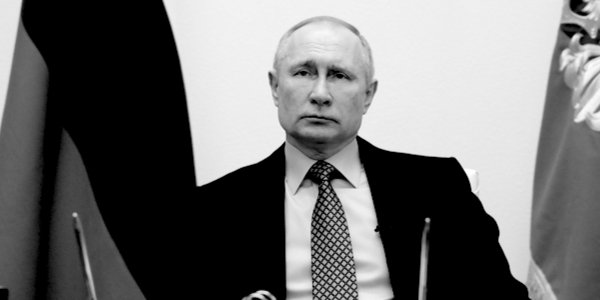UKRAINE is entering the third year of its unequal war with Russia in a worse plight than when the fighting began.
It has begun inauspiciously with the surrender of the besieged eastern city of Avdiivka by its outnumbered defenders. The Russians seem impregnably dug in on a fifth of Ukrainian territory and the military, badly depleted by casualties, lacks reinforcements.
The Ukrainian army’s 2023 offensive was a failure that served to demonstrate the unwinnability of the war without Nato boots on the ground, and these are not going to be forthcoming.
In consequence, the increasingly desperate President Zelensky has sacked his top military commander despite his reputed popularity with the troops and the fact that his successor will have to deal with the same problems and the same lack of resources.
The imperturbable Vladimir Putin, apparently secure in the Kremlin despite the heavy cost of the war to Russia, has ramped up domestic weapons production to fight as long as necessary, and has secured the open support of China and Iran against Ukraine’s Nato backers. His new alliances have neutered the effect of sanctions which Nato and the EU hoped would cripple his ability to pursue the war.
The suspicious death in a Siberian prison of Alexei Navalny, Putin’s main political opponent, may have fired Western outrage over the Russian leader’s methods and long-term threat to European security but will not affect the course of the war in Ukraine with its geopolitical dimension.
The excitement of the early days of the conflict, when the invading Russians looked fumbling and incompetent and the Ukrainians thwarted their efforts to capture Kiev, has long since evaporated. This third year of fighting seems certain to be a slog against odds dictated by Russia’s status as a nuclear power which has vetoed any desire by Nato to intervene directly in the fighting even if it had wanted to, which is doubtful.
For all Nato’s technological superiority, mainly American, no one in the West wants to fight the Russians. Biden and European leaders swear they will support Ukraine for as long as it takes but while willing the end have deliberately not supplied sufficient means, a weakness that will have been noted with satisfaction in Beijing and Tehran as well as Moscow.
With a vital US aid package stuck in congress, Zelensky is complaining that his country lacks the weapons it needs to defend itself and have any hope, however slim, of driving the Russians back. The weapons shortage can be alleviated; the lack of manpower, as the coffins flow back from the front, cannot.
The main worry for Zelensky and the West is whether Putin, who has been content so far to sit on his gains in the Russian-speaking east, will take advantage of Ukraine’s military weakness and launch an offensive to take more territory including Kiev.
Dmitry Medvedev, a former Russian president and Putin ally, says Moscow still wants to capture the Ukrainian capital either to control it directly or to install a puppet government. Despite the Russians’ success so far, there is a question mark over their ability to impose their rule on the much larger part of Ukraine which is not Russophone and is hostile to Moscow.
Republican lawmakers have held up approval of a $60billion aid package for Ukraine in part because of their immigration dispute with President Biden but also because Ukraine’s reputation for epic corruption has gone before it. Where is the money going? They question whether taxpayer dollars should be spent on an apparently doomed mission to save Ukraine. Public support for the war is also less unanimous among Western electorates than their leaders.
The war will inevitably loom over the US presidential campaign. Donald Trump has said he would end it within 24 hours of taking office, though not explaining how he would do so without giving Putin all that he wants. He has criticised the drain to Ukraine of weaponry which the US might need to solve its own problems.
Not to be forgotten is that the Ukraine war is a symptom rather than a cause of this East-West struggle. Nato’s US-led expansion to Russia’s western border – as well as its invitation to Ukraine to join what Putin sees as an anti-Russian alliance – is the nub and there will be no peace in eastern Europe while it is unresolved.
In the run-up to the war, Biden chose to ignore Putin’s warnings that he regarded Nato as an ‘existential threat’ and his demand for the withdrawal of Nato missiles and forward forces from the region as well as a guarantee that Ukraine would never join.
There is no obvious way, to put it mildly, that the two positions can be reconciled. The former Soviet satellites in central and eastern Europe and especially the Baltic states regard Nato as their guarantee against Russian expansionism, of which the Ukraine invasion is primary evidence.
From the West’s point of view, a third year of fighting in Ukraine delays an even more unpalatable day of reckoning.











